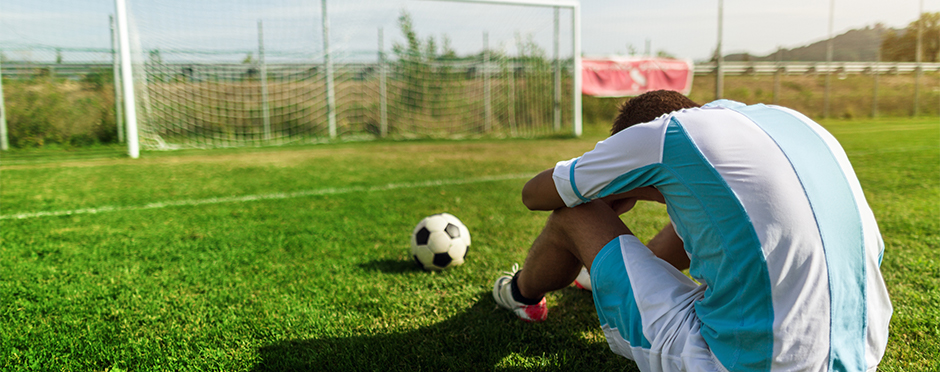
The Emotional Impact of Injuries
Leave a CommentAs much as we would like to prevent injuries, they do occur. In an ideal world, an injury would not disrupt our regular activities or participation in sport. But many times injuries lead to shifts in our regular activities. For many athletes, this injury can trigger an emotional and mental response.
Emotional responses that can occur after injury:
- Sadness
- Isolation
- Irritation
- Lack of motivation
- Anger
- Frustration
- Changes in appetite
- Sleep disturbance
- Disengagement
There is no correct way for an athlete to respond to an injury; every athlete is an individual and their response will vary. It is important to note that the emotional response to injury may change throughout the course of healing. It starts at the time of the injury but continues throughout rehab, and into the return-to-play phase as well. The healthcare team should be aware of emotional responses and be on the lookout for athletes who may not have proper coping to these intense emotions.
Some emotional responses may become problematic, particularly if an athlete needs help and does not know how to ask for it. Depression for example, can impact recovery and magnify other emotional responses. Depression can be related to feelings of performance failure. Elite athletes have shared their personal experiences with depression after injury that kept them from their sport for an extended length of time. When an athlete is injured, they may not only lose their physical independence, they may also feel like they are being punished or isolated from their sport and/or their team. There can be a large change to their social environment and this can affect them mentally.
How Can We Help Injured Athletes Emotionally During Recovery:
- Athletes may not want to share their feelings as it may be seen as a sign of weakness. The coaches, trainers and doctors should work together to provide a support network for the athlete and counseling should be considered as well.
- Try to keep the athlete involved with their team. They can attend practice, go to games, sit on the bench or keep statistics so they still interact with their teammates and don’t feel isolated.
- Allow the athlete to help set goals for recovery and rehabilitation and make sure they are aware of the timeline of their healing.
- Use a team approach to recovery – coaches, parents, physicians, athletic trainers, physical therapists and other members of the healthcare team should stay in contact with each other to make sure the athlete is coping well and has the support needed for recovery both physically and mentally.
- Try to discourage a “tough it out” mentality because this can add to the stigma around mental health issues, and athletes may retreat further into themselves rather than seeking help.
By being aware of the emotional response to injury as well as the physical injury itself, we can help athletes have optimal recovery. If you are an athlete dealing with an injury, request an appointment at a nearby Athletico location so our experts can help you get back in the game.
The Athletico blog is an educational resource written by Athletico employees. Athletico bloggers are licensed professionals who abide by the code of ethics outlined by their respective professional associations. The content published in blog posts represents the opinion of the individual author based on their expertise and experience. The content provided in this blog is for informational purposes only, does not constitute medical advice and should not be relied on for making personal health decisions.
References:
Rpowell. “Mind, Body and Sport: How Being Injured Affects Mental Health.” NCAA.org – The Official Site of the NCAA, 11 July 2017, www.ncaa.org/sport-science-institute/mind-body-and-sport-how-being-injured-affects-mental-health.
